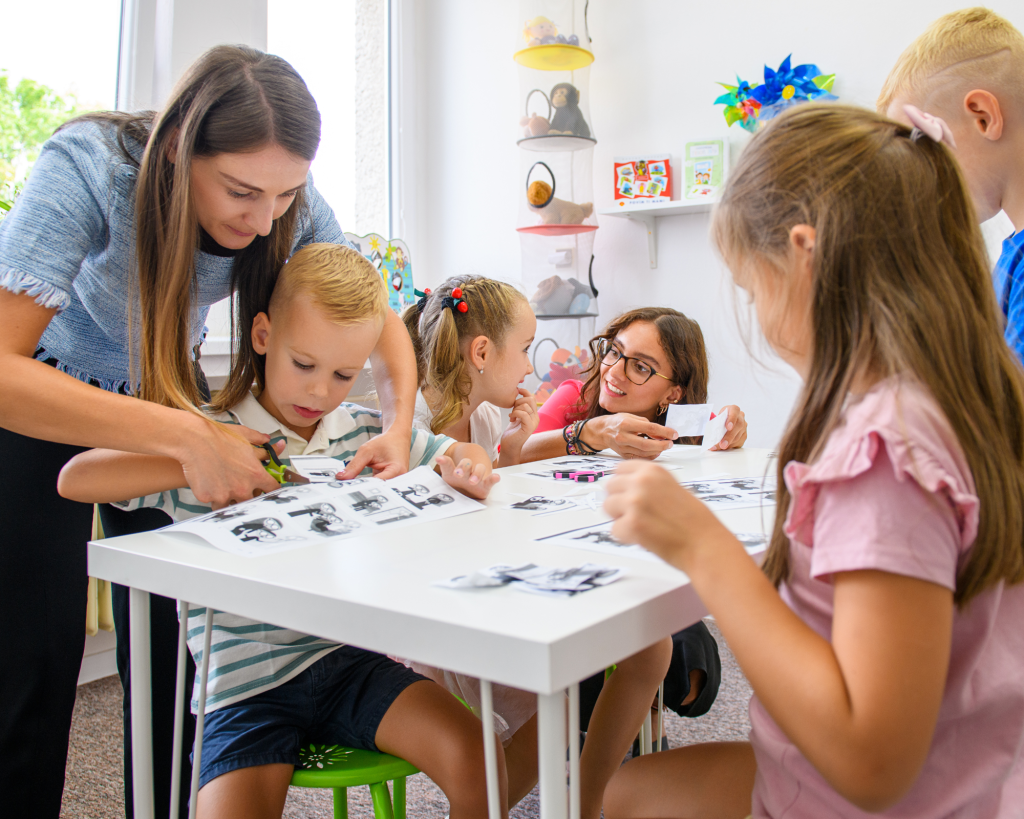Thinking of enrolling your child into primary school next year? It is going to be a big step for little kids to start school. You might notice some articles and discussions about ‘school readiness’ – but what does that really mean? Read on to find out more about school readiness and how you can help your child prepare for big school.
What is ‘School Readiness’?
School readiness is a measure of the knowledge, skills, and behaviours that enable children to participate and succeed in school. A common misconception of the meaning of school readiness is that it is being able to read, write and do basic maths before starting school. But that isn’t the case at all! School readiness is all about the development of the whole child. This includes their social and emotional skills, physical skills, communication skills,and cognitive skills. Children cannot thrive at school if they haven’t developed the skills to get along with other children, following instructions, and communicating their needs.
Research shows that children who start school developmentally ready to learn, tend to do better in school. Thus, setting them up for further success later in life!
Is my child ready for school?
School readiness includes many different skills and behaviours such as:
– Social Skills
Being able to get along with other children, displaying basic manners,assert themselves, being ale to play independently and with other children are all part of social skills.
– Emotional Maturity
Being able to regulate their emotions, cope with minimal adult contact in large groups, focus on tasks, follows instructions and directions from teachers, handle with the stress of the new school environment, and understand rules or boundaries.
– Language Skills
Being able to talk and listen to peers and adults, speak clearly,communicate their needs, understand stories, and begin to identify some (not all) letters and sounds.
– Cognitive Skills
Has basic number sense, basic thinking skills, being able to wait and take turns.
– Physical Health and Coordination
Has basic health, fine motor skills (use of the little muscles of the hands to grip a pencil or crayon and turn pages in a book) and has physical coordination (being able to run, jump, climb, and play ball).
– Independence
Being able to manage their needs without adult supervision, such as going to the toilet, dressing, unwrapping their lunch and overseeing their belongings.
If you are unsure whether your child is ready to start big school, you can talkt o your child’s preschool/kindergarten teacher or early childhood educator.They will be able to help you with assessing your child’s development and readiness for school.
What Can You Do to Help?
Here are some tips you can do t help your little one get ready for school.
– Try to arrange play dates with other children starting at the same school.This will give your child the chance to develop their social skills and might be able to make a friend too!
– Let your child practise drawing with a range of different materials such as pencils, crayons, and even chalk. This will help them develop their fine motor skills. Don’t forget to compliment them for their efforts to boost up their confidence!
– Encourage your child to dress and undress themselves and use the toilet independently.
– Encourage your child to have conversations with you. Ask questions,listen to their answers, ask them about what they think and feel so that they can express themselves with their friends and teachers.
– Read with your child as often as possible. If your child has some reading skills, that’s great! But if not, you don’t have to worry, they will be taught at school. Just by enjoying books with you develops early literacy skills and helps encourage a love of reading. When you are reading with your child,talk to them about the story, point out new words, and ask questions. This will help with their comprehension, vocabulary and language skills.
– Help your child develop a basic awareness of numbers by helping around the house. They can help set up the table and count the plates, match socks from the washing line or measure the ingredients for some baking.
– Make time to play with your child. You can play simple board games such as snakes and ladders, card games such as snap and go fish. These are great for practising turn-taking, sharing, waiting and learning to cope with their emotions if they did not win.
– You can let your child join school readiness programs such as our Kids SPOT group. SPOT stands for Speech Pathology and Occupational Therapy. This a partnership of Happy Dots and A Growing Understanding Speech Pathology. This group program is ideal for children aged 4 to 6 years and are starting school next year. Utilising different themes(Animals, Dinosaurs, Pirates and Fairies etc) to ensure engagement, the activities presented over 10 weeks are tailored to suit personal goals and will develop the following skills: Listening and following instructions,Verbal expression in tasks such as sharing ‘news’, Social skills including turn-taking and joint attention, Pre-reading and pre-writing skills,Beginning sound-letter links and early phonological awareness, Fine motor skills including using pencils and scissors, Self care skills such as opening lunch packets, Confidence and self esteem, Gross Motor Activities – large body movements ie. running, jumping, crawling. If you would like to help your child learn valuable skills, and help them get ready for school, you can click here, or call (02) 4044 1122.
It is important to remember that every child is unique and develops at their own pace. They have their own strengths, interests, temperament and approach to learning. If your child does not display all the ‘school readiness’skills and behaviours described above, do not worry. If you feel at all concerned with your child’s development, talk to their teacher/early childhood educator or your GP – they will be able to provide assessment and advice.



